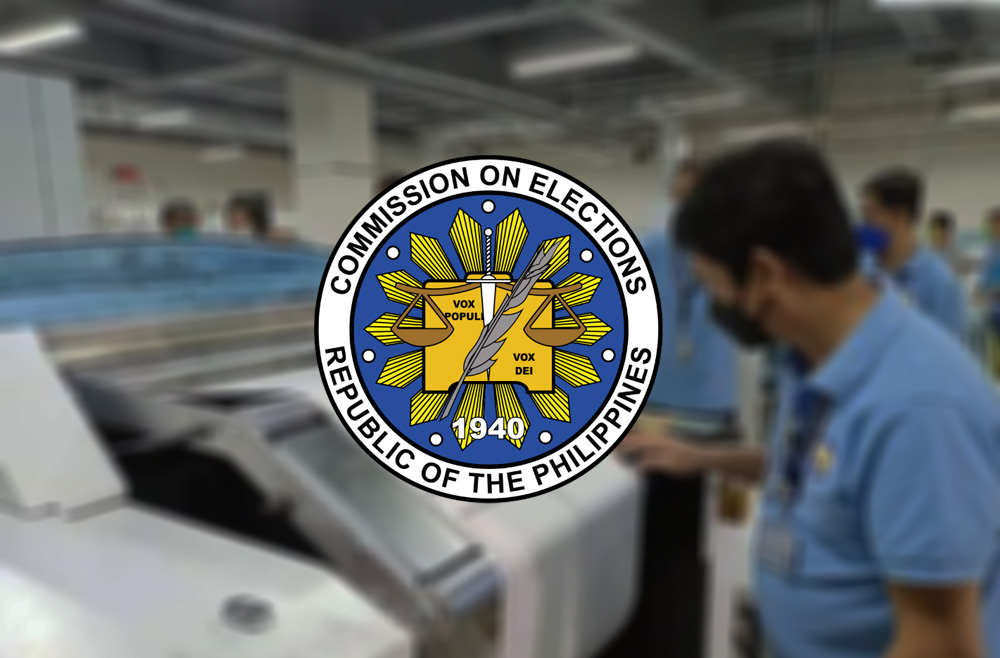
By Ferdinand Patinio | Philippine News Agency
The Commission on Elections (Comelec) has reminded all candidates and political parties to be mindful of intellectual property (IP) rights in their campaign activities for next year’s midterm elections.
Based on Resolution No. 11086 promulgated on Dec. 9 and made public Wednesday, the Comelec en banc should be cautious in producing campaign jingles, slogans, and merchandise that may violate the law for failure to get approval or secure appropriate permits from owners.
“Candidates and parties shall ensure that intellectual property rights are respected in the production of their election propaganda and the conduct of their election campaigns,” it said.
The poll body added that any violation of intellectual property law, rules, and regulations shall be promptly referred to the Intellectual Property Office of the Philippines (IPOPHL) for appropriate actions.
At the same time, the Comelec also urged candidates to use environment-friendly campaign materials.
“Parties and candidates are hereby encouraged to use recyclable and environment-friendly materials; and avoid those that contain hazardous chemicals and substances in the production of their campaign and election propaganda,” it said.
Also, the aspirants are required to put in their printed propaganda materials the phrase: “This material should be recycled or disposed of responsibly” and to follow “green” policies of local government units (LGUs), particularly the use of plastic and other similar materials.
The Comelec noted that the allowed campaign materials are pamphlets, leaflets, cards, decals, stickers, or other written or printed materials the size of which does not exceed 8 ½ inches in width and 14 inches in length; handwritten or printed letters urging voters to vote for or against any particular party or candidate for public office; posters or standees not exceeding 2 feet by 3 feet; and streamers not exceeding 3 feet by 8 feet in size, displayed at the site, and only on the occasion of a public meeting or rally.
Also considered as legal propaganda materials, those on mobile units and vehicles, whether engine or manpower-driven or animal-drawn, with or without sound systems or loudspeakers and with or without lights; paid advertisements in print or broadcast media; outdoor and static or LED billboards owned by private entities or persons; mobile or transit advertisements on public utility vehicles; and signboards displayed in the headquarters.
Prohibited acts under Comelec’s guidelines on protection of IP rights
The poll body will also not allow campaign materials displayed on LED display boards located along highways and streets, LCD monitors posted on walls of public buildings, and other similar devices owned by local government units, government-owned and -controlled corporations, or any agency or instrumentality of the government.
Propaganda materials are also prohibited on motor vehicles such as patrol cars, ambulances, and for other similar purposes that are owned by local government units, government-owned and controlled corporations, and other agencies and instrumentalities of the government, particularly those bearing government license plates; and public transport vehicles owned and controlled by the government, such as the Metro Rail Transit (MRT), Light Rail Transit (LRT), and Philippine National Railway (PNR) trains and the like.
Posting campaign materials in waiting sheds, sidewalks, street and lamp posts, electric posts and wires, traffic signage, and other signboards erected on public property, pedestrian overpasses and underpasses, flyovers and underpasses, bridges, main thoroughfares, center islands of roads and highways, schools, public shrines, barangay halls, government offices, health centers, public structures and buildings or any edifice thereof; and within the premises of public transport terminals, owned and controlled by the government, such as bus terminals, airports, seaports, docks, piers, train stations, and the like, are also illegal.
As for broadcast political advertisements, national bets are only allowed to have 120 minutes of television ads (per station), and 180 minutes for radio ads (per station) while local candidates have a limit of 60 minutes of TV ads (per station) and only 90 minutes of radio ads (per station).
Only 1/4 page for broadsheets and 1/2 page for tabloids are the allowed maximum size of printed political advertisements for each candidate (national or local), with such ads disallowed from being published more than three times a week (per newspaper).
For outdoor campaign advertisements, national candidates have only two months of advertisement in a certain static or LED billboard and within a radius of one kilometer from each other; local bets on the other hand are only allowed 30 days of advertisements in either static or LED billboards and within a radius of 500 meters from each other.
The campaign period for those running for national positions will begin on Feb. 11 until May 10, 2025, while local bets are allowed to promote themselves starting March 28 up to May 10, 2025.
